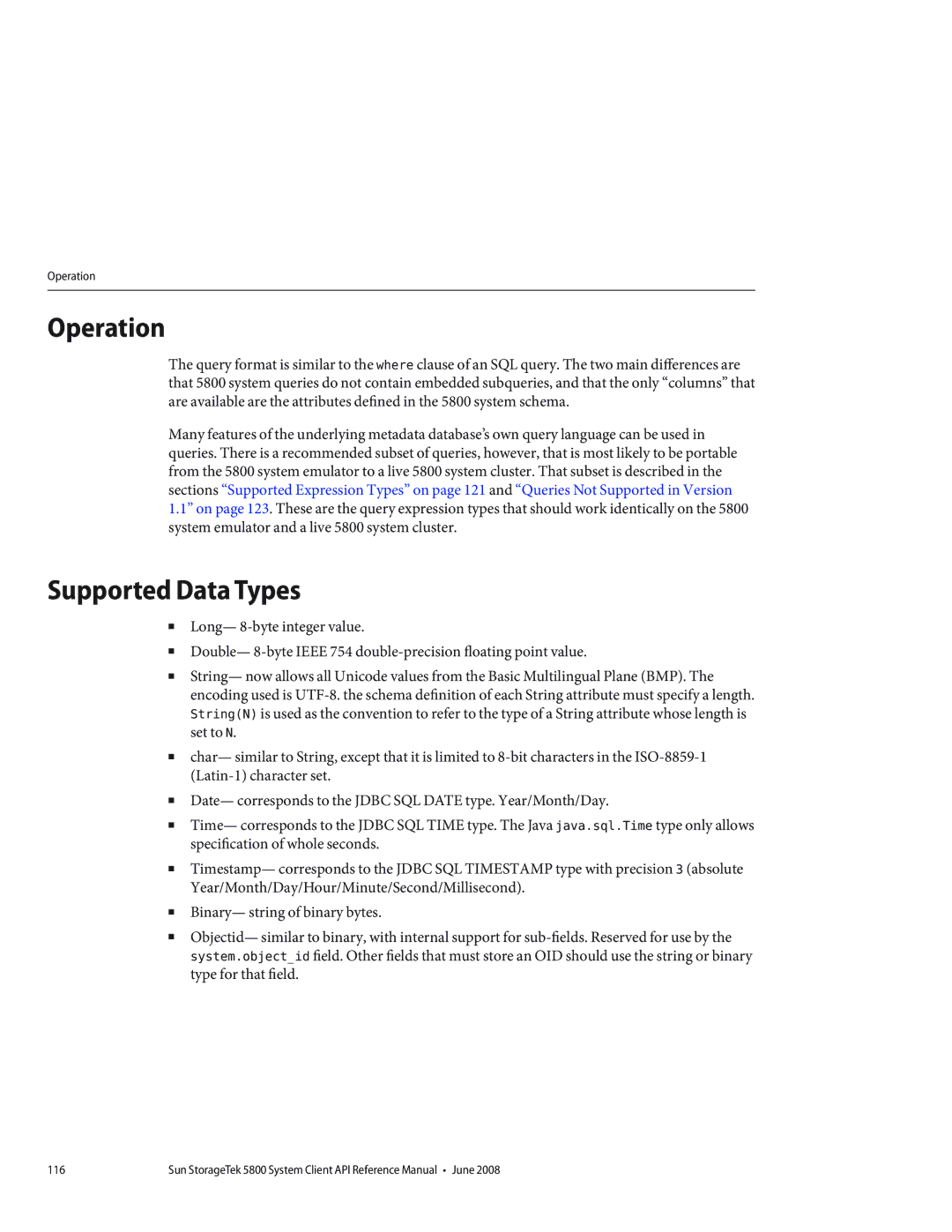Operation
Operation
The query format is similar to the where clause of an SQL query. The two main differences are that 5800 system queries do not contain embedded subqueries, and that the only “columns” that are available are the attributes defined in the 5800 system schema.
Many features of the underlying metadata database’s own query language can be used in queries. There is a recommended subset of queries, however, that is most likely to be portable from the 5800 system emulator to a live 5800 system cluster. That subset is described in the sections “Supported Expression Types” on page 121 and “Queries Not Supported in Version 1.1” on page 123. These are the query expression types that should work identically on the 5800 system emulator and a live 5800 system cluster.
Supported Data Types
■Long—
■Double—
■String— now allows all Unicode values from the Basic Multilingual Plane (BMP). The encoding used is
■char— similar to String, except that it is limited to
■Date— corresponds to the JDBC SQL DATE type. Year/Month/Day.
■Time— corresponds to the JDBC SQL TIME type. The Java java.sql.Time type only allows specification of whole seconds.
■Timestamp— corresponds to the JDBC SQL TIMESTAMP type with precision 3 (absolute Year/Month/Day/Hour/Minute/Second/Millisecond).
■Binary— string of binary bytes.
■Objectid— similar to binary, with internal support for
116 | Sun StorageTek 5800 System Client API Reference Manual • June 2008 |
